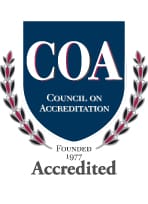Graduation
Haven of Hope understands that many foster youth have lost most, if not all, of their support system as they face the daunting challenges of the adult world. Up to this point, many youth in foster care have experienced a turbulent rollercoaster ride of emotions. Many have bounced through five or more different placements before “graduating” from the system. Haven of Hope knows that, as these youth celebrate their 18th birthdays, it may be difficult to gift-wrap a set of independent living skills or conjure up a quick diploma. It’s no secret that foster youth have high rates of homelessness, substance abuse, unwanted pregnancy and criminal activity. Education is a huge factor in this scenario and Haven of Hope places significant emphasis on academics and high school graduation. We want our young adults to be equipped with the best tools possible for success. 
Foster children face many challenges in life. For those in long-term care, one major obstacle is the difficult transition out of state care into adulthood. Education is a key factor in determining whether a foster child successfully makes this transition. Regrettably, many foster children do not. Compared to their peers, foster children have lower scores on standardized tests and higher absenteeism, tardiness, truancy, and dropout rates.
-Maryland Public Policy Institute, Focus Group Study: Foster Care Families, Children, and education, December 2006
A large body of research suggests that children in foster care are among the most at risk for poor life outcomes in American society. Adults who were formerly in foster care are more likely than the general population to be homeless, unprepared for employment and limited to low-skill jobs, and dependent on welfare or Medicaid. They are also more likely to be convicted of crimes and incarcerated, to succumb to drug and alcohol abuse, or to have poor physical or mental health. Women who have been in foster care experience higher rates of early pregnancy and may be more likely to see their own children placed in foster care.
-McDonald et al., Assessing the Long-Term Effects of Foster Care

